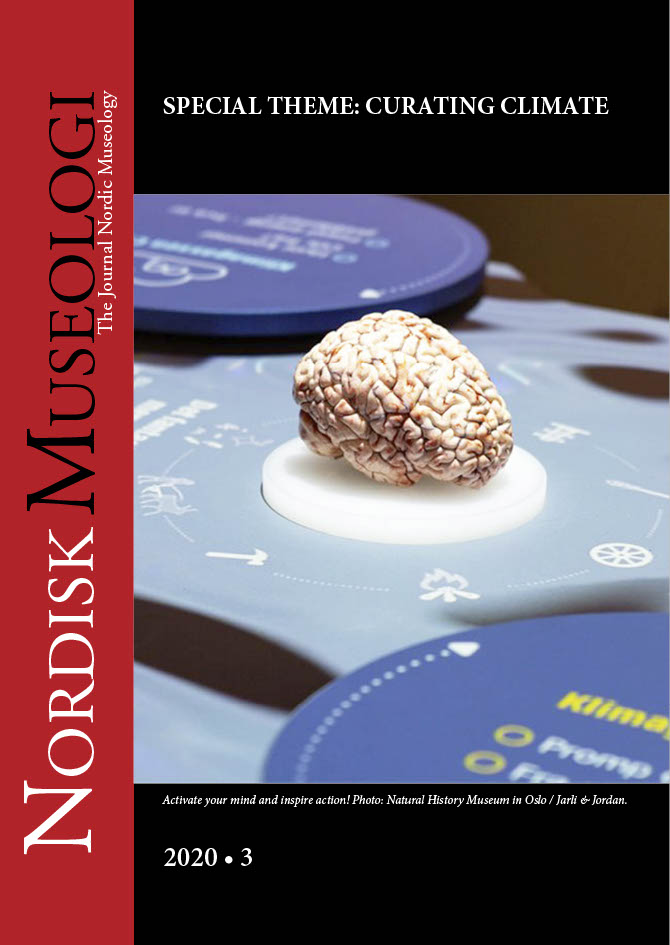Weaving strands of knowledge. Learning about environmental change in the Bhutan Himalayas
DOI:
https://doi.org/10.5617/nm.8700Abstract
Climate change is a complex phenomenon, so much so that even those with expert knowledge on the scientific data struggle to understand the impacts of climate change on their everyday lives. Contradictions across systems of knowledge make clear that climate change is not just a problem of scientific understanding but is also simultaneously a problem of global coordination as well as a sociopolitical problem of connecting domains of knowledge that are seldom valued equitably. The project described in this paper is a prototype effort to put knowledge from community members in two culturally distinct rural areas of the world at equal footing with scientific knowledge. The overarching project aim was to design partnership-based inquiry into environmental and climate change that coordinated the aforementioned three facets of climate change (a) scientific understanding, (b) cross-cultural coordination among globally dispersed communities, and (c) sociopolitical equity in bringing nondominant perspectives to the table.
Downloads
Published
Issue
Section
License
Contents published in editions of The Journal Nordic Museology in volumes predating 2017 are protected by the Norwegian Law of Copyright. This means that text and images published in these volumes can only be shared and republished with written permission from the author and/or photographer. Starting from 2017, the content published in The Journal Nordic Museology is - unless otherwise stated - licensed through Creative Commons Licence CC BY-NC-ND.4.0. This means that content can be copied, distributed and disseminated in any medium or format under the following terms:
- Attribution — You must give appropriate credit, provide a link to the license, and indicate if changes were made. You may do so in any reasonable manner, but not in any way that suggests the licensor endorses you or your use.
- Non-Commercial — You may not use the material for commercial purposes.
- No Derivatives — If you remix, transform, or build upon the material, you may not distribute the modified material.
- No additional restrictions — You may not apply legal terms or technological measures that legally restrict others from doing anything the license permits.
Notices:
- You do not have to comply with the license for elements of the material in the public domain or where your use is permitted by an applicable exception or limitation.
- No warranties are given. The license may not give you all of the permissions necessary for your intended use. For example, other rights such as publicity, privacy, or moral rights may limit how you use the material. Authors who publish in Nordic museology accept the following conditions:
Authors(s) retains copyright to the article and give Nordic Museology right to first publication while the article is licensed under the Creative Commons Lens CC BY-NC-ND 4.0 This license allows sharing the article for non-commercial purposes, as long as the author and first publishing place (The Journal Nordic Museology) is credited. The license does not allow others to publish processed versions of the article without the author's permission.
The author is free to publish and distribute the work/article after publication in Nordisk Museologi, while referring to the journal as the first place of publication. Submissions that are under consideration for publication or accepted for publication in Nordisk Museology cannot simultaneously be under consideration for publication in other journals, anthologies, monographs or the like. By submitting contributions, the author accepts that the contribution is published in both digital and printed editions of Nordisk Museology. For more about publication, see the Author Guidelines.



